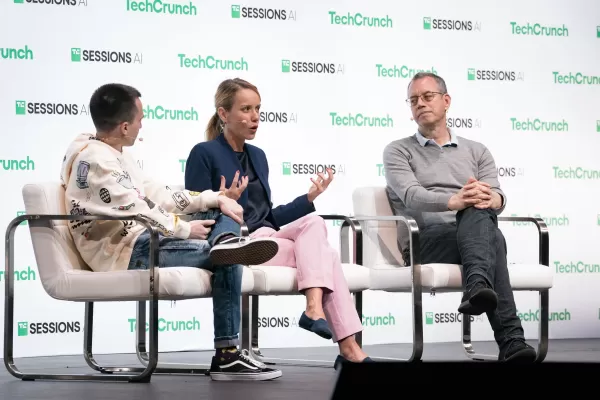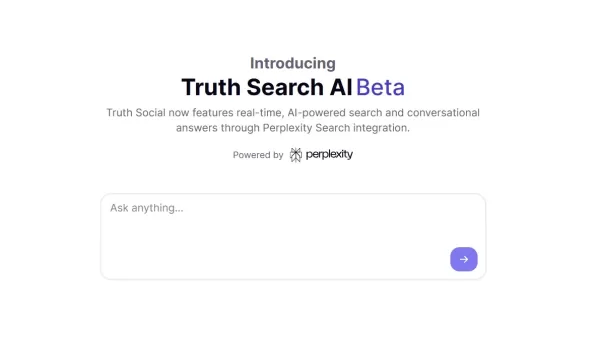What are AI agents? How to access a team of personalized assistants

The rise of generative AI has brought about exciting new developments in AI technology, with one of the most talked-about innovations being agentic AI. At its heart, agentic AI is straightforward: it's an AI assistant that can perform tasks for you autonomously, without needing detailed instructions for each step. From sending emails based on specific cues to navigating complex tasks like closing sales deals, these assistants can save businesses and their employees a significant amount of time, allowing them to focus on more strategic activities.
Intrigued by the possibilities? Whether you're new to the concept or ready to dive in, here's a comprehensive guide to agentic AI, enriched with insights from my research and contributions from industry experts.
What is an AI Agent?
Definitions of an AI agent can vary depending on the context, product, and company, but generally, an AI agent is a software tool designed to perform tasks on your behalf. It combines human instructions, environmental triggers, and—crucially—its own reasoning abilities to decide what actions to take and when.
"AI agents are the ones we delegate tasks to. They're goal-seeking," explains Srini Iragavarapu, AWS's director for generative AI applications and developer experiences. "They can figure out the tools needed and ask for more information if required."
Unlike AI chatbots or assistants that merely provide information, AI agents can execute tasks and identify when they're needed, offering a higher level of assistance to both individuals and businesses.
How Does an AI Agent Work?
AI agents build upon familiar technologies, integrating advanced AI capabilities like large language models, reasoning, natural language processing, and long context windows to execute tasks more intelligently and adaptively.
"AI agents use AI capabilities, including machine learning and natural language processing, to understand the context of an interaction and apply automation to manage the associated workflow," says Omer Minkara, principal research director at Aberdeen Strategy and Research.
These agents rely on a mix of human direction and the data or context they're allowed to access. They can also respond to external triggers, such as receiving an email, to initiate a series of actions or decisions. The specific information and context used depend on the user's needs, which can vary from simple to highly complex.
"We categorize agents on a spectrum from simple to advanced," said Richard Riley, general manager of power platform marketing at Microsoft. "Some simple agents might be grounded in just one or two files."
What Makes an AI Agent Different from an AI Chatbot?
An AI chatbot responds to queries based on its training data and can perform predefined tasks. In contrast, an AI agent uses contextual information to make inferences and execute tasks, requiring a higher level of reasoning.
"A chatbot is more of a dialogue system," said Iragavarapu. "But AI agents not only converse with you; they also act on your behalf."
For instance, if you ask a chatbot or AI assistant to order groceries, it might generate a list and place the order. However, it wouldn't consider additional contexts like your fridge inventory, dietary preferences, or delivery timing. An AI agent, on the other hand, could integrate all these factors to make a more informed decision.
What Are Some Enterprise Use Cases for AI Agents?
AI agents can be tailored to suit a range of enterprise needs, from basic tasks like sending messages to complex operations across procurement, sales, and customer interactions.
"It's more about understanding the art of the possible than offering a fixed menu of options," said Riley. "If you can build something, you can build anything."
The key is to identify processes within your business that could benefit from additional assistance. "Number one, find a use case that matters to you," added Riley.
Instead of aiming for overly complex AI agents, start by streamlining simpler tasks that can have a significant impact. Minkara suggests thinking of AI agents as digital employees who can handle lower-level tasks.
"The vision is that you can automate and have AI agents manage many low-touch or low-complexity interactions," said Minkara.
Considering AI agents as additional team members can help you identify which tasks to delegate and maximize their utility. Moreover, treating the deployment of AI agents like hiring employees can ensure you take the necessary steps before implementation.
How Can You Get Started with an AI Agent?
Accessing an AI agent is now easier than ever, with major tech vendors offering their own AI agent solutions. Companies like Microsoft, Amazon, OpenAI, Google, AWS, Salesforce, Adobe, Zoom, and Qualtrics are among those providing such services.
These platforms often feature user-friendly AI agent-building systems. To get started, you can provide grounding data and answer a few questions. For enterprises, brand representatives can help identify suitable use cases and guide implementation. For consumers, you can experiment with AI agents within existing AI platforms like ChatGPT or Google, which offer features like Deep Research to compile information from numerous sources into a concise document.
What Should You Consider Before Implementing AI Agents in Your Company?
Before rolling out AI agents, it's crucial to assess your company's data infrastructure. Good data is essential for AI agents to perform effectively, much like high-quality fuel is needed for a supercar.
"The algorithms may be great, but if your data is garbage, then you may have garbage outcomes," said Minkara.
What Are the Risks?
While AI agents can streamline tasks, there are concerns about their potential to cause disruption if they malfunction. However, they are designed to operate within the permissions you set.
"AI agents can only do what you allow them to do," said Riley.
Despite their advanced capabilities, AI agents are not immune to errors or "hallucinations" seen in simpler AI models. Safeguards are necessary to mitigate these risks.
"As you build these agents, it's important to have evaluation sets, datasets, quality analysis, and alarms to monitor performance," said Iragavarapu.
Is an AI Agent the Same as AGI?
AI agents and artificial general intelligence (AGI) are often confused, but they are distinct. AGI represents a much more advanced AI that can perform at human levels without assistance, whereas AI agents operate within the limits you define.
"AGI is the top of the totem pole, the North Star," said Minkara.
While AI agents offer a glimpse into autonomous task execution, AGI remains a distant goal requiring substantial research and development.
How Quickly Are AI Agents Expected to Grow?
The market for AI agents is poised for rapid growth. A study by Boston Consulting Group (BCG) forecasts a 45% CAGR over the next five years. Additionally, a Deloitte report from November 2024 predicts that 25% of companies using generative AI will launch AI agent pilots or proofs of concept in 2025, rising to 50% by 2027.
"There will be as many agents as there are business processes," said Riley.
As AI agents represent the next frontier in AI, now is an excellent time to explore their potential to drive growth and innovation in your business.
Want more stories about AI? Sign up for Innovation, our weekly newsletter.
Related article
 Dundundance: The Viral Dance Trend Taking Over Social Media
Have you discovered the internet's latest dance obsession that's equal parts hilarious and absolutely addictive? Meet Dundundance - the viral sensation that's not just about steps, but about unleashing pure joy through movement. This global phenomeno
Dundundance: The Viral Dance Trend Taking Over Social Media
Have you discovered the internet's latest dance obsession that's equal parts hilarious and absolutely addictive? Meet Dundundance - the viral sensation that's not just about steps, but about unleashing pure joy through movement. This global phenomeno
 "Exploring AI Safety & Ethics: Insights from Databricks and ElevenLabs Experts"
As generative AI becomes increasingly affordable and widespread, ethical considerations and security measures have taken center stage. ElevenLabs' AI Safety Lead Artemis Seaford and Databricks co-creator Ion Stoica participated in an insightful dia
"Exploring AI Safety & Ethics: Insights from Databricks and ElevenLabs Experts"
As generative AI becomes increasingly affordable and widespread, ethical considerations and security measures have taken center stage. ElevenLabs' AI Safety Lead Artemis Seaford and Databricks co-creator Ion Stoica participated in an insightful dia
 Truth Social’s New AI Search Engine Heavily Favors Fox News in Results
Trump's social media platform introduces an AI-powered search function with apparent conservative media slantExclusive AI Search Feature LaunchesTruth Social, the social media platform founded by Donald Trump, has rolled out its new artificial intell
Comments (15)
0/200
Truth Social’s New AI Search Engine Heavily Favors Fox News in Results
Trump's social media platform introduces an AI-powered search function with apparent conservative media slantExclusive AI Search Feature LaunchesTruth Social, the social media platform founded by Donald Trump, has rolled out its new artificial intell
Comments (15)
0/200
![CharlesRoberts]() CharlesRoberts
CharlesRoberts
 April 23, 2025 at 7:21:48 PM EDT
April 23, 2025 at 7:21:48 PM EDT
Os agentes de IA parecem legais, mas configurá-los é um incômodo. Tentei usar um para gerenciar minha agenda e foi uma questão de sorte. Às vezes funciona bem, outras vezes é uma bagunça. Poderia ser um divisor de águas se melhorassem o processo de configuração. 🤔


 0
0
![JeffreyThomas]() JeffreyThomas
JeffreyThomas
 April 23, 2025 at 1:46:43 PM EDT
April 23, 2025 at 1:46:43 PM EDT
Los agentes de IA suenan geniales, pero configurarlos es un fastidio. Intenté usar uno para gestionar mi agenda y fue un éxito a medias. A veces funciona bien, otras veces es un desastre. Podría ser un cambio de juego si mejoran el proceso de configuración. 🤔


 0
0
![JackMartinez]() JackMartinez
JackMartinez
 April 23, 2025 at 11:53:27 AM EDT
April 23, 2025 at 11:53:27 AM EDT
Los agentes de IA son como tener un asistente personal que realmente hace las cosas sin que tenga que microgestionar! Es como magia, pero a veces se desvían un poco. Aún así, muy útil para las tareas diarias! 🤖✨


 0
0
![HarryLewis]() HarryLewis
HarryLewis
 April 23, 2025 at 4:11:25 AM EDT
April 23, 2025 at 4:11:25 AM EDT
AI 에이전트는 내가 세세하게 지시하지 않아도 일을 해주는 개인 비서 같아! 마법 같지만, 가끔 제멋대로 움직이기도 해. 그래도 일상적인 작업에는 정말 유용해! 🤖✨


 0
0
![GregoryWilson]() GregoryWilson
GregoryWilson
 April 23, 2025 at 1:07:32 AM EDT
April 23, 2025 at 1:07:32 AM EDT
このAIエージェントアプリは便利すぎる!自分でタスクをこなしてくれるから、細かい指示を出す必要がない。まるで黙っていても何をすべきかわかっているパーソナルアシスタントみたい。ただ、時々勝手に行動しすぎて、私が望まない選択をすることもあるけど、全体的に時間の節約になるから最高!😊


 0
0
![JuanLewis]() JuanLewis
JuanLewis
 April 23, 2025 at 12:23:34 AM EDT
April 23, 2025 at 12:23:34 AM EDT
AI agents sound cool, but setting them up feels like a hassle. I tried using one to manage my schedule, and it was hit or miss. Sometimes it gets things right, other times it's a mess. Could be a game-changer if they improve the setup process. 🤔


 0
0

The rise of generative AI has brought about exciting new developments in AI technology, with one of the most talked-about innovations being agentic AI. At its heart, agentic AI is straightforward: it's an AI assistant that can perform tasks for you autonomously, without needing detailed instructions for each step. From sending emails based on specific cues to navigating complex tasks like closing sales deals, these assistants can save businesses and their employees a significant amount of time, allowing them to focus on more strategic activities.
Intrigued by the possibilities? Whether you're new to the concept or ready to dive in, here's a comprehensive guide to agentic AI, enriched with insights from my research and contributions from industry experts.
What is an AI Agent?
Definitions of an AI agent can vary depending on the context, product, and company, but generally, an AI agent is a software tool designed to perform tasks on your behalf. It combines human instructions, environmental triggers, and—crucially—its own reasoning abilities to decide what actions to take and when.
"AI agents are the ones we delegate tasks to. They're goal-seeking," explains Srini Iragavarapu, AWS's director for generative AI applications and developer experiences. "They can figure out the tools needed and ask for more information if required."
Unlike AI chatbots or assistants that merely provide information, AI agents can execute tasks and identify when they're needed, offering a higher level of assistance to both individuals and businesses.
How Does an AI Agent Work?
AI agents build upon familiar technologies, integrating advanced AI capabilities like large language models, reasoning, natural language processing, and long context windows to execute tasks more intelligently and adaptively.
"AI agents use AI capabilities, including machine learning and natural language processing, to understand the context of an interaction and apply automation to manage the associated workflow," says Omer Minkara, principal research director at Aberdeen Strategy and Research.
These agents rely on a mix of human direction and the data or context they're allowed to access. They can also respond to external triggers, such as receiving an email, to initiate a series of actions or decisions. The specific information and context used depend on the user's needs, which can vary from simple to highly complex.
"We categorize agents on a spectrum from simple to advanced," said Richard Riley, general manager of power platform marketing at Microsoft. "Some simple agents might be grounded in just one or two files."
What Makes an AI Agent Different from an AI Chatbot?
An AI chatbot responds to queries based on its training data and can perform predefined tasks. In contrast, an AI agent uses contextual information to make inferences and execute tasks, requiring a higher level of reasoning.
"A chatbot is more of a dialogue system," said Iragavarapu. "But AI agents not only converse with you; they also act on your behalf."
For instance, if you ask a chatbot or AI assistant to order groceries, it might generate a list and place the order. However, it wouldn't consider additional contexts like your fridge inventory, dietary preferences, or delivery timing. An AI agent, on the other hand, could integrate all these factors to make a more informed decision.
What Are Some Enterprise Use Cases for AI Agents?
AI agents can be tailored to suit a range of enterprise needs, from basic tasks like sending messages to complex operations across procurement, sales, and customer interactions.
"It's more about understanding the art of the possible than offering a fixed menu of options," said Riley. "If you can build something, you can build anything."
The key is to identify processes within your business that could benefit from additional assistance. "Number one, find a use case that matters to you," added Riley.
Instead of aiming for overly complex AI agents, start by streamlining simpler tasks that can have a significant impact. Minkara suggests thinking of AI agents as digital employees who can handle lower-level tasks.
"The vision is that you can automate and have AI agents manage many low-touch or low-complexity interactions," said Minkara.
Considering AI agents as additional team members can help you identify which tasks to delegate and maximize their utility. Moreover, treating the deployment of AI agents like hiring employees can ensure you take the necessary steps before implementation.
How Can You Get Started with an AI Agent?
Accessing an AI agent is now easier than ever, with major tech vendors offering their own AI agent solutions. Companies like Microsoft, Amazon, OpenAI, Google, AWS, Salesforce, Adobe, Zoom, and Qualtrics are among those providing such services.
These platforms often feature user-friendly AI agent-building systems. To get started, you can provide grounding data and answer a few questions. For enterprises, brand representatives can help identify suitable use cases and guide implementation. For consumers, you can experiment with AI agents within existing AI platforms like ChatGPT or Google, which offer features like Deep Research to compile information from numerous sources into a concise document.
What Should You Consider Before Implementing AI Agents in Your Company?
Before rolling out AI agents, it's crucial to assess your company's data infrastructure. Good data is essential for AI agents to perform effectively, much like high-quality fuel is needed for a supercar.
"The algorithms may be great, but if your data is garbage, then you may have garbage outcomes," said Minkara.
What Are the Risks?
While AI agents can streamline tasks, there are concerns about their potential to cause disruption if they malfunction. However, they are designed to operate within the permissions you set.
"AI agents can only do what you allow them to do," said Riley.
Despite their advanced capabilities, AI agents are not immune to errors or "hallucinations" seen in simpler AI models. Safeguards are necessary to mitigate these risks.
"As you build these agents, it's important to have evaluation sets, datasets, quality analysis, and alarms to monitor performance," said Iragavarapu.
Is an AI Agent the Same as AGI?
AI agents and artificial general intelligence (AGI) are often confused, but they are distinct. AGI represents a much more advanced AI that can perform at human levels without assistance, whereas AI agents operate within the limits you define.
"AGI is the top of the totem pole, the North Star," said Minkara.
While AI agents offer a glimpse into autonomous task execution, AGI remains a distant goal requiring substantial research and development.
How Quickly Are AI Agents Expected to Grow?
The market for AI agents is poised for rapid growth. A study by Boston Consulting Group (BCG) forecasts a 45% CAGR over the next five years. Additionally, a Deloitte report from November 2024 predicts that 25% of companies using generative AI will launch AI agent pilots or proofs of concept in 2025, rising to 50% by 2027.
"There will be as many agents as there are business processes," said Riley.
As AI agents represent the next frontier in AI, now is an excellent time to explore their potential to drive growth and innovation in your business.
Want more stories about AI? Sign up for Innovation, our weekly newsletter.
 Dundundance: The Viral Dance Trend Taking Over Social Media
Have you discovered the internet's latest dance obsession that's equal parts hilarious and absolutely addictive? Meet Dundundance - the viral sensation that's not just about steps, but about unleashing pure joy through movement. This global phenomeno
Dundundance: The Viral Dance Trend Taking Over Social Media
Have you discovered the internet's latest dance obsession that's equal parts hilarious and absolutely addictive? Meet Dundundance - the viral sensation that's not just about steps, but about unleashing pure joy through movement. This global phenomeno
 "Exploring AI Safety & Ethics: Insights from Databricks and ElevenLabs Experts"
As generative AI becomes increasingly affordable and widespread, ethical considerations and security measures have taken center stage. ElevenLabs' AI Safety Lead Artemis Seaford and Databricks co-creator Ion Stoica participated in an insightful dia
"Exploring AI Safety & Ethics: Insights from Databricks and ElevenLabs Experts"
As generative AI becomes increasingly affordable and widespread, ethical considerations and security measures have taken center stage. ElevenLabs' AI Safety Lead Artemis Seaford and Databricks co-creator Ion Stoica participated in an insightful dia
 Truth Social’s New AI Search Engine Heavily Favors Fox News in Results
Trump's social media platform introduces an AI-powered search function with apparent conservative media slantExclusive AI Search Feature LaunchesTruth Social, the social media platform founded by Donald Trump, has rolled out its new artificial intell
Truth Social’s New AI Search Engine Heavily Favors Fox News in Results
Trump's social media platform introduces an AI-powered search function with apparent conservative media slantExclusive AI Search Feature LaunchesTruth Social, the social media platform founded by Donald Trump, has rolled out its new artificial intell
 April 23, 2025 at 7:21:48 PM EDT
April 23, 2025 at 7:21:48 PM EDT
Os agentes de IA parecem legais, mas configurá-los é um incômodo. Tentei usar um para gerenciar minha agenda e foi uma questão de sorte. Às vezes funciona bem, outras vezes é uma bagunça. Poderia ser um divisor de águas se melhorassem o processo de configuração. 🤔


 0
0
 April 23, 2025 at 1:46:43 PM EDT
April 23, 2025 at 1:46:43 PM EDT
Los agentes de IA suenan geniales, pero configurarlos es un fastidio. Intenté usar uno para gestionar mi agenda y fue un éxito a medias. A veces funciona bien, otras veces es un desastre. Podría ser un cambio de juego si mejoran el proceso de configuración. 🤔


 0
0
 April 23, 2025 at 11:53:27 AM EDT
April 23, 2025 at 11:53:27 AM EDT
Los agentes de IA son como tener un asistente personal que realmente hace las cosas sin que tenga que microgestionar! Es como magia, pero a veces se desvían un poco. Aún así, muy útil para las tareas diarias! 🤖✨


 0
0
 April 23, 2025 at 4:11:25 AM EDT
April 23, 2025 at 4:11:25 AM EDT
AI 에이전트는 내가 세세하게 지시하지 않아도 일을 해주는 개인 비서 같아! 마법 같지만, 가끔 제멋대로 움직이기도 해. 그래도 일상적인 작업에는 정말 유용해! 🤖✨


 0
0
 April 23, 2025 at 1:07:32 AM EDT
April 23, 2025 at 1:07:32 AM EDT
このAIエージェントアプリは便利すぎる!自分でタスクをこなしてくれるから、細かい指示を出す必要がない。まるで黙っていても何をすべきかわかっているパーソナルアシスタントみたい。ただ、時々勝手に行動しすぎて、私が望まない選択をすることもあるけど、全体的に時間の節約になるから最高!😊


 0
0
 April 23, 2025 at 12:23:34 AM EDT
April 23, 2025 at 12:23:34 AM EDT
AI agents sound cool, but setting them up feels like a hassle. I tried using one to manage my schedule, and it was hit or miss. Sometimes it gets things right, other times it's a mess. Could be a game-changer if they improve the setup process. 🤔


 0
0





























